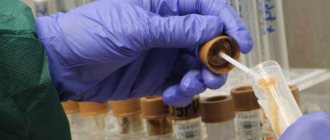How can you tell if your baby has colic?
The main question is usually whether you are missing symptoms of something more serious.
If you notice that the child begins to cry
- unusual timbre (louder, shriller, similar to a cry of pain),
- much more often and for longer than before,
- without calming down from what had helped before.
carefully examine his skin, do not forget to take off his socks, diaper (it happens that an adult’s hair accidentally pinches a finger or penis, wrapped around the base) remember what happened before the crying began, measure the temperature.
Urgently inform the doctor (“red flags” in the child’s condition)
- Cries for more than two hours straight without calming down.
- The temperature is above 38 degrees in an undressed baby.
- It has been dropped or shaken violently.
- He began to react worse to you, looks inhibited, “limp.”
- Stopped eating and urinating as usual.
- There is blood in the stool.
- Age 1 month (+/− a few days).
If there is none of this, and the baby looks as usual between bouts of crying, there is definitely no need to urgently run somewhere. This means the reason is not dangerous, and it can be discussed with your treating pediatrician during his working hours.
Now notice how you feel when your baby cries.
Urgently see loved ones/psychologist/social worker (“red flags” in the mother’s condition)
- You feel that if the child continues to scream, you may lose your temper and treat him roughly.
- It seems to you that he is manipulating and mocking.
- You can't do this anymore, life doesn't bring you joy.
These are signs that the mother’s rest should come first in the family. If rest does not help, these are signs of postpartum depression, you should definitely consult a doctor (psychiatrist or psychotherapist). If there are no loved ones, you can be supported in the social protection department, antenatal clinic, center for psychological assistance to the population, and charitable organizations that help mothers.
About the role of family and mother
What all families with children who develop colic have in common is the parents’ lack of confidence in their abilities and the low self-esteem of the mother herself. A mother is a support for a child, but who can she lean on? The woman cares for the baby, and the family cares for the woman.
In the mother-child dyad, someone must be the leader and someone must be the follower. When the mother gives up her position, the baby ceases to feel support and protection, and stress increases. All her fears and worries are transferred to the child. Stress hormones act immediately and trigger a cascade of reactions involving the gastrointestinal tract, developing cramps and abdominal pain.
The efforts of relatives and friends should be aimed at helping and supporting the woman-mother. Criticism and reproaches towards her are unacceptable! The attention and support from the child's father is priceless.
Harmonious relationships in the family and the calmness of the mother are powerful factors in the prevention and correction of colic.
Our opinion is subjective. To communicate more substantively with a specialist (be it a doctor or psychologist), start keeping a diary of observations of the child’s behavior and your actions. Such recording of events will help to identify cause-and-effect relationships even without seeking help. Perhaps the answers lie “on the surface”.
Typical symptoms of colic in a baby
They can occur slightly differently, there are no strict mandatory signs, but there is a “classic”, most common picture. For many children, colic begins and ends at the same time of day, often in the afternoon, after feeding. Mothers quickly begin to distinguish them from ordinary screams.
During a colic baby:
- The crying becomes shrill, like a cry of pain, inconsolable.
- Muscle tone increases: he knocks his legs, presses them to his stomach, clenches his fingers into fists, and arches.
- There may be bloating, rumbling in the stomach, sometimes it becomes easier after the gas passes.
About the daily routine
A child is also a person, and everything human is not alien to him. If he sleeps during the day, pleasing his parents, then what should he do at night? That's right, stay awake. Hence the question. Or maybe the parents have colic? Who created problems for themselves out of the blue with their own hands.
The child demands attention! The success of a sound sleep in an active day. How? Active: feeding, wakefulness, gymnastics, massage, communication, change of environment, etc. And your day's work will pay off with a restful night's sleep.
What happens when there is colic in the abdomen of a newborn?
It may seem surprising, but doctors have not found an exact explanation. Many people use the term “intestinal colic in children,” but scientists suggest that it is not just a matter of digestion.
It is believed that with colic, normal beneficial bacteria settle in the child’s stomach and the intestines “learn to move.” Another explanation is excessive or disordered stimulation of the nervous system, as in migraines in adults, which also results in pain.
In any case, colic in newborns does not require additional examinations (images, blood tests, stool tests, etc.). There is no need to look for reasons for your behavior, because the reason is not that your parents do or don’t do something. This is a variant of normal development.
How to help your child and yourself?
What to do during attacks? You can try the following:
- Distract your child:
- massage your tummy
- create a uniform noise (vacuum cleaner, washing machine, heartbeat sound),
- gently rock in a hammock, crib or stroller,
- take it in a sling,
- give me a pacifier
- swaddle loosely (however, pediatricians do not recommend that the baby sleep in swaddles, especially if he can roll over on his stomach. This increases the risk of sudden death of the baby),
- change the environment: for some people there are too many impressions, it is better for him to dim the lights and be alone, for others, on the contrary, they calm down on a walk when they look around;
- Reduce air swallowing:
- use special nipples,
- apply correctly to the chest,
- hold upright for a few minutes after feeding);
It is advised to try eliminating strong allergens (milk, eggs, wheat, nuts) from your diet one at a time for several days. But this is considered necessary only if the doctor finds signs of allergies or food intolerance in you or your child. Current recommendations usually do not involve changing the diet while breastfeeding (for example, it is not necessary to eliminate all vegetables and fruits).
- If your baby immediately feels better after defecation, you can stimulate it with a gas tube, suppositories with glycerin, or microenemas (they are equally effective). Only soft tubes of neonatal sizes may be used, with lubricant (Vaseline, vegetable oil or others). It is unlikely that you will want to do this too often, but if it helps relieve acute attacks, do not worry, the child will not become “dependent” on these procedures.
- Probiotics can help breastfed babies (the effect of L.reuteri bacteria has been proven).
There are methods that in studies did not differ from the “dummy”, so the doctor will not recommend them as effective. However, they are safe enough that you can try them yourself if it makes you feel better.
- Preparations with simethicone (if your child is prescribed thyroxine, consult your doctor before).
- “Waters” with herbal ingredients (dill, raisins).
If a “colic remedy” contains many unknown herbal and other ingredients, it should be avoided. This formulation may not have been sufficiently studied for use in infants.
Try different methods, but spend resources only on those that have a noticeable effect. Sometimes it's better to just wait.
Diet for mom
A proper mother's diet will help prevent possible gas formation and flatulence in the child. Many products are absolutely safe for the body of both mother and baby, but there are also aggressive ones that often cause unwanted colic.
A mother who feeds her baby milk for up to four months should completely exclude the following foods from her diet:
- Cabbage of any kind;
- Coffee and tea;
- Tomatoes;
- Dishes with hot and fiery seasonings;
- Onion;
- Nuts;
- Products with caffeine;
- Tomatoes;
- Cow's milk;
- Corn
- Sour cheese;
- Legumes.
If the child's colic is caused by any of these foods, then after a two-day diet they should completely go away.
No matter how parents worry about colic, this is a completely normal occurrence for infants. You should take this calmly and help your child cope with the disease using simple and effective methods. In case of complications and extreme painfulness of the process, the best option would be to contact a pediatrician, who can competently prescribe an anti-colic medication exclusively for your baby - based on age and weight. Proper treatment will solve the problem and prevent the worsening of flatulence.
Medicines against colic. Auxiliary products and drug therapy.
Gas tubes and microenemas
If all your previous actions have not brought relief, we use auxiliary means - gas tubes and microenemas. They help get rid of excess gas in the abdomen, which reduces pain. Modern gas outlet tubes have an insertion limiter - the tip of the tube is thickly lubricated with Vaseline oil or cream and inserted up to the limiter. If the effect is insufficient, use an enema with 10-15 ml of clean water at room temperature (take the smallest syringe, don’t forget to lubricate the tip and insert shallowly 1 cm). Kabrita recommends the Windi straw.
Drug therapy
Among the means of drug therapy for colic, simethicone preparations - antifoam agents - are widely used. Simethicone helps to collapse gas bubbles in the intestine, reducing bloating. Herbal remedies based on fennel, mint, and dill also reduce spasms and gas formation. The history of their use is the longest. But be careful with herbs, if you have allergies in your family, your child may also have an allergic reaction to such remedies.
Probiotics
Some probiotics have an analgesic and preventive effect on infant colic. Probiotics containing reuteri have shown good effectiveness.
About the role of microbiota
A great variety of representatives of the world of viruses and bacteria live on the human skin and mucous membranes. And this diversity is extremely important. Together they are a kind of “border guards” who protect the internal environment of the body. Moreover, the intestines are a training ground for the immune system. And the more types of microbes are present in it, the more adapted (trained) the owner is.
If the intestines’ own inhabitants cannot cope with the tasks, or their numbers are extremely small, microbes unfriendly to humans begin to predominate, causing harm and disrupting the functions of the skin and mucous membranes. This leads to increased permeability, deterioration of barrier functions and the development of a number of adverse consequences.
In such cases, trusted friends – probiotics – can come to the rescue.
About fermented milk products
Some probiotics, including L.rhamnosus LGG®, have enzymatic activity and the ability to transform food into other products. This usually occurs through the formation of lactic acid and other metabolic end products. Thus, fermented milk products contain not only probiotics, but also their metabolites, which have a beneficial effect on digestion.
Fermented milk products based on whole cow's milk (and other animals), such as biolact, children's kefir or yogurt, cannot be used in the diet of children in the first eight months of life. For this purpose, children's fermented milk formulas have been created, balanced in composition and subject to strict production control. They can be used from birth and even in full. Adding such a mixture to the diet, for example, Nutrilak Premium Fermented Milk, helps ease the digestion process, regular bowel movements and maintaining microbiota balance.
It is important!
Probiotics are live microorganisms that, when administered in adequate quantities, have a positive effect on human health.
All over the world, only two microorganisms have the largest evidence base for their effectiveness - LGG and BB-12 from Chr. Hansen. They influence both the composition and diversity of the intestinal microbiota, the formation of stool (number and consistency) and our mood and behavior.
It has been proven that the presence of LGG in a baby's diet reduces episodes of crying and fussiness.









